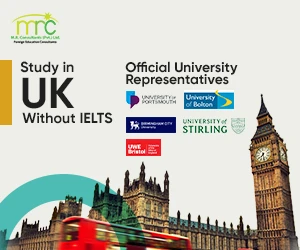%20Scholarships.jpg)
The Japan Student Services Organization (JASSO) is an independent administrative agency that offers full support to both Japanese and international students. A fundamental component of their purpose is to provide financial help to privately supported overseas students with outstanding academic performance and financial need. Unlike the fully financed MEXT Scholarship, which is frequently applied for through the Japanese Embassy in Pakistan, JASSO scholarships are normally applied for after you have been admitted to a Japanese university.
This scholarship seeks to relieve the financial burden of studying abroad, allowing students to focus on their studies while also experiencing Japanese culture.
Programs Offered
JASSO provides a few significant scholarship programs for international students:
- Monbukagakusho Honors Scholarship for Privately Funded International Students: This is the most popular JASSO scholarship. It is intended for international students enrolled as regular students at Japanese universities, graduate schools, junior colleges, colleges of technology, or specialized training colleges who are self-supporting their studies.
- Student Exchange Support Program (Scholarship for Study in Japan under Agreement): This scholarship is designed specifically for international students who are taking part in short-term student exchange programs (typically 8 days to one year) through an academic exchange agreement between their home institution and a Japanese university. Applications for this program are typically submitted through your local university.
- Reservation Program for Monbukagakusho Honors Scholarship for Privately-Financed International Students: This program enables students to secure a scholarship before traveling to Japan, frequently based on their EJU scores.
Benefits
The JASSO Scholarship primarily offers a monthly stipend to assist with living expenses. While it does not often cover entire tuition or travel expenses, it considerably alleviates students' financial burdens.
- Monthly stipend: The amount varies according to the program level. Undergraduate, junior college, college of technology, and Japanese language institute students may receive roughly ¥48,000 per month, while graduate students (Master's, Doctoral, and Research) may receive between ¥65,000 and ¥80,000 per month.
- Support for Living Expenses: The stipend is intended to help with housing, food, local transit, and other everyday needs.
- Focus on Studies: JASSO helps students focus on their academic goals without having to worry about living expenses.
Eligibility Criteria
While precise criteria may differ significantly between programs and the host university, the following are the general eligibility requirements for Pakistani citizens applying for a JASSO Scholarship:
- Nationality: You must be a citizen of a country with which Japan has diplomatic relations. Pakistan is one such country. Dual Japanese citizens are often ineligible.
- Enrollment in a Japanese Institution: You must be (or plan to be) enrolled as a regular student at a Japanese university, graduate school, junior college, college of technology, specialized training college, or Japanese language institution with the intention of continuing your studies.
- Academic Performance: Applicants are often expected to have a strong academic record from their prior university. A minimum Grade Point Average (GPA) of 2.30 out of 3.00 (or similar, according to JASSO's evaluation formula) from the previous year is sometimes required, with the intention of maintaining this performance.
- Financial Need: The award is designed for students who need financial support. There are typically requirements for the average monthly amount of remittances received (excluding tuition costs) and, if you have dependents in Japan, their annual income.
- Visa Status: You must have a "College Student Visa" (or be eligible for one).
- No Concurrent Major Scholarships: You cannot get another scholarship that provides more than ¥80,000 per month. Some exceptions may apply to travel expenditures and repayable loans. It is critical to inquire with both JASSO and any other scholarship sponsors regarding their "double-funding" regulations.
- Commitment to Completing Studies: For exchange programs, you must be dedicated to finishing your studies at your home university after your study stint in Japan.
How to Apply
Applying for a JASSO scholarship is mostly done through Japanese universities, not directly from Pakistan. Here’s how it works for Pakistani students:
- Get accepted into a Japanese University: This is the first and most important step. You need to apply and be accepted by a Japanese university, graduate school, junior college, or another recognized school. Some schools offer programs in English, but having some basic Japanese skills (like JLPT N5 or N4) can be helpful.
- University Recommendation: After you’re accepted, your university will usually put you forward for the JASSO Scholarship based on how well you've done academically and your financial situation. There’s a limit on how many scholarships each university can offer.
-
Prepare Application Documents: While the school takes care of the nomination, you’ll likely need to provide them with:
- Your academic transcripts.
- Proof that you’re enrolled at the Japanese school after you get accepted.
- Evidence of your financial need.
- A copy of your passport.
- Any other documents the school asks for.
- University Sends Application to JASSO: The University will put together your scholarship application and send it to JASSO for you. You usually can’t apply directly to JASSO as an individual.
- Selection and Notification: JASSO looks over the applications from universities and makes the final choice. Your university will then let you know if you got the scholarship.
- Visa Application: Once you have your acceptance letter and scholarship notification, your university will apply for a Certificate of Eligibility (COE) for you. With the COE, you can then apply for a student visa at the Japanese Embassy in Islamabad or the Consulate in Karachi.
FAQs
1. Can I apply for the JASSO Scholarship from Pakistan?
Usually, no. You typically apply for JASSO scholarships, especially the Monbukagakusho Honors Scholarship, through the Japanese university that accepts you after you’ve been admitted. If you’re part of a student exchange program, your home university will handle the application.
2. Is the JASSO Scholarship fully funded?
No, it’s not fully funded like the MEXT Scholarship. JASSO provides a monthly allowance for living expenses, but it usually doesn’t cover tuition fees, entrance fees, or airfare. That said, many Japanese universities have their own tuition waivers or cuts for international students.
3. What GPA do I need for the JASSO Scholarship?
Generally, you need a minimum GPA of 2.30 out of 3.00 (or its equivalent) based on last year’s grades. The way they calculate it might differ a bit according to JASSO's rules.
4. Do I need to know Japanese for the JASSO Scholarship?
While there are many programs in English, it helps to know some Japanese, like JLPT N2 or a particular score on the EJU Japanese test, especially for specific programs. Even programs in English will benefit from having some basic Japanese skills for daily life in Japan.
5. Can I work part-time while I have the JASSO Scholarship?
Yes, you can work part-time while studying in Japan, but you need permission and can't work more than 28 hours a week. Just keep in mind that there are limits on other income sources with the JASSO scholarship, so make sure your total earnings stay within the allowed limits.
6. What if I get another scholarship while on JASSO?
JASSO usually doesn’t allow you to get other scholarships that bring in more than a certain amount each month (like ¥80,000). You have to report any other scholarships you get, and going over that limit could disqualify you from JASSO. Always check the specific rules.
7. How competitive is the JASSO Scholarship?
The JASSO scholarship is pretty competitive since there are limited spots and it depends on the quotas given to each university in Japan. A good academic record and clear financial need are key to getting selected.
Get Latest Scholarships in Your Email
Get a regular scholarship alert. We'll deliver important and latest scholarships to your email



.gif)


%20Scholarships.jpg)
%20Scholarships.jpg)
%20Scholarships.jpg)
%20Scholarships.jpg)
%20Scholarships.jpg)

























